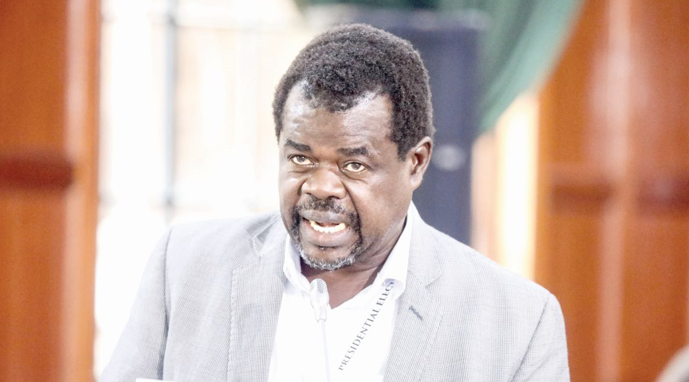Reprieve for 67 officers as court halts suspension
By Nancy.Gitonga, November 21, 2023Sixty-seven officers under probe by the anti-graft body on claims of corruption got temporary reprieve yesterday after the High Court issued orders stopping the implementation of the directive issued last week by Head of Public Service Felix Koskei to suspend them for twelve months on being linked to corruption.
The conservatory order by the Constitutional and Human Rights Court come an hour after Busia Senator Okiya Omtatah also filed a separate suit at the Employment and Labour Relations Court (ELRC) challenging Koskei’s decision that sought the suspension of the affected officers and of six Chief Executive Officers from various state agencies and for alleged involvement in corruption and procurement irregularities within their respective institutions.
In a brief ruling, Justice Chacha Mwita of the Milimani High Court suspended the decision by Koskei as requested by the Ethics and Anti-Corruption Commission to suspend the 67 police officers over allegations of their involvement in corruption-related malpractices pending determination of a lawsuit filed by activist Memba Ocharo who claims that the directives are illegal and unconstitutional.
“A conservatory order is hereby issued restraining the respondents from implementing the directive communicated through the letter dated November 10 2023 by the 1st respondent (EACC) recommending the suspension of the interested parties 67 police officers until further orders of the court,” Judge Mwita has ordered.
The judge has also barred the Inspector General of Police Japhet Koome, Attorney General Justin Muturi, the Office of the President, EACC, National Police Service Commission and Cabinet Secretary interior Kithure Kindiki and their agents or any other person from interfering with the 67 police officers discharge of their duties until further orders of the court.
He granted the state seven days to file their responses before the hearing of the matter on January 23, 2024.
The orders were issued after Memba, through lawyer Danstan Omari, argued that the directions issued by EACC to the Inspector General of police were malicious and also illegal.
“EACC actions are characterised with malice and are solely designed to impede the operational effectiveness of the police force,” court papers read.
While seeking to suspend the letter of suspension to the letter by Koskei to the IG, Omari informed Justice Mwita that a state officer of the rank of the Head of Public Service can not purport to implement an intended action that is clearly malicious and baseless in total disregard of the welfare of the concerned police officers.
“It is against the law for a state organ such as the EACC to issue clearly illegal, unprocedural and malicious instructions to an independent office as that is an insult to articles 245 (4) and 246 (3)(b) of the Constitution of Kenya,” Omari states.
Illegal and unconstitutional
In his petition, Omtatah claims that the decision by Koskei for the suspension of the officers as requested by the Ethics and Anti-Corruption Commission is illegal and unconstitutional.
According to Omtatah, EACC usurped the powers of the Boards of Directors of State corporations by seeking to have the Cabinet Secretaries of various ministries suspend the Chief Executive Officers of the state agencies.
“The petition challenges the constitutional and legal validity of the decision by the Ethics and Anti-Corruption Commission (EACC) to overlook the Boards of Directors of State corporations and deal directly with the line Cabinet Secretaries, asking them to suspend the Chief Executive Officers of the public entities, yet the law expressly vests those powers in the Boards and not in the Cabinet Secretaries,” Omtatah says in the court papers.
He argued that the decision to address the Cabinet Secretaries and not the Boards of the State corporations, was done in bad faith and against express provisions of the Constitution and the law, which vest the power to hire and fire CEOs in the Boards.
On the suspension of the 67 officers, Omtatah argues that the EACC was wrong to address its letter to the Inspector-General of the National Police Service instead of the National Police Service Commission, which is responsible for the human resources of the institution.
“Even where the letter is addressed to the correct entity, the petition alleges the abuse by the EACC of Section 42(7) of the Leadership and Integrity Act, No. 19
of 2012 and Regulation 25 of the Leadership and Integrity Regulations 2015 by invoking them without reference to a court of competent jurisdiction. Hence, even where the letters are addressed to the Boards,” he states.
